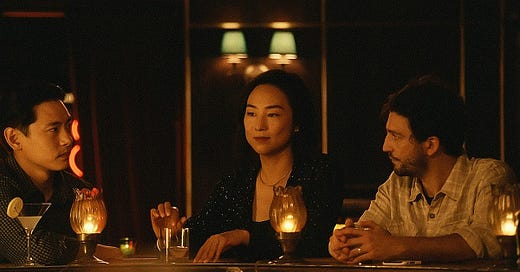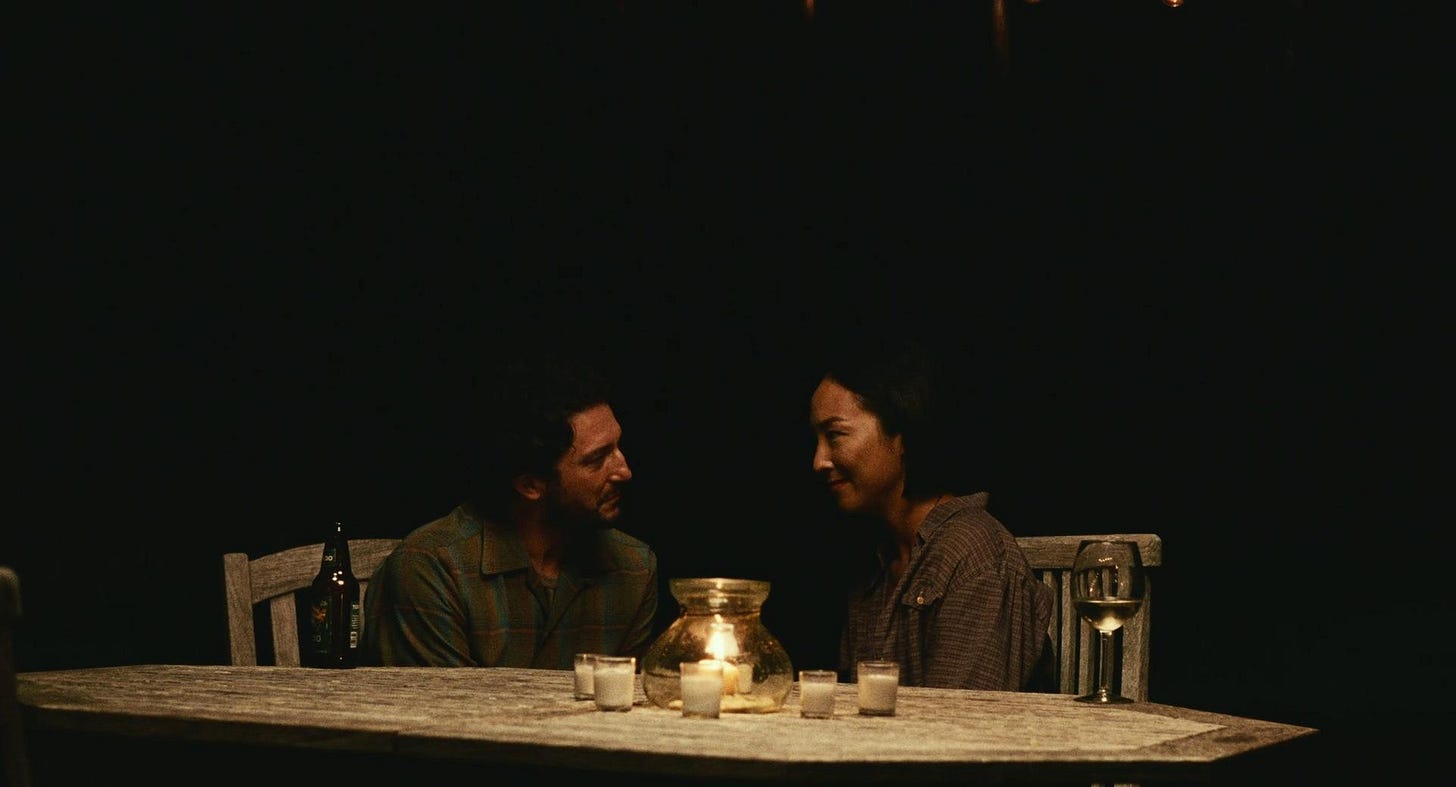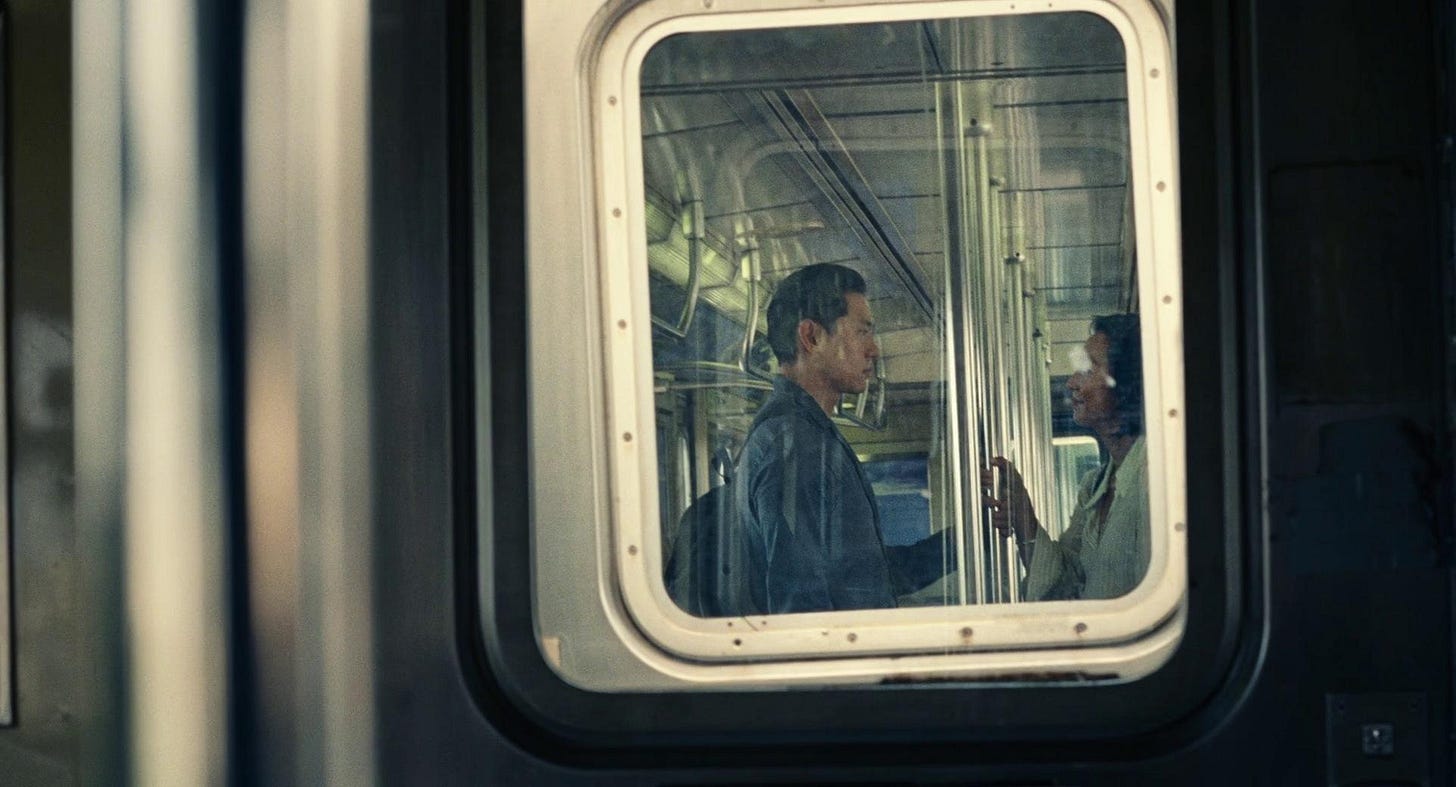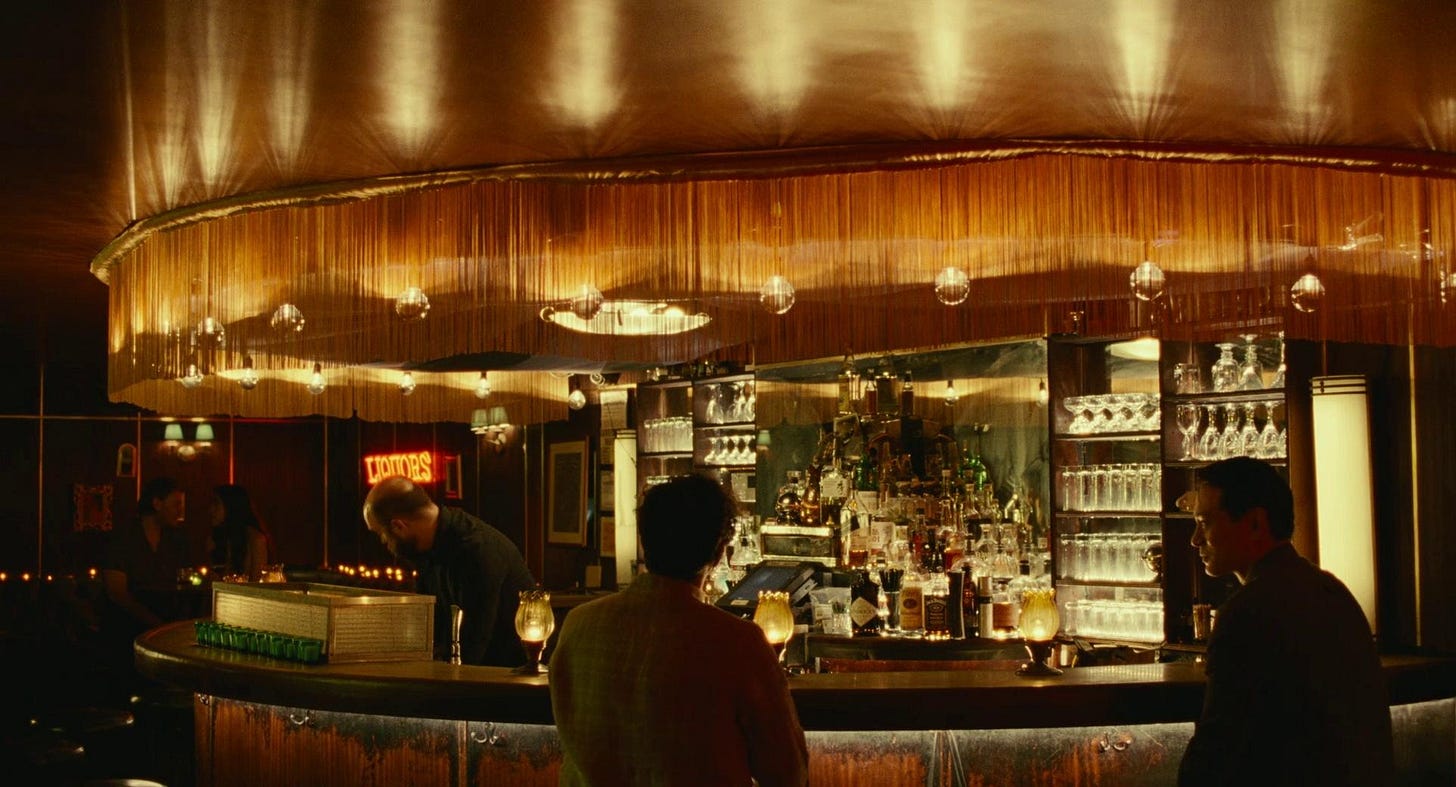Past Lives, Future Masculinities
When 2023 began, I was not expecting a man who wrote a book called “Boner” to be one of my favorite characters of the year.
The first few pages of Anne Carson’s Autobiography of Red have stuffed themselves into the folds of my brain. “Are there many little boys who think they are a Monster? But in my case I am right…” Geryon’s words have echoed through my mind countless times since I first read them. The answer, I think, is yes, there are many little boys who think they are monsters. I myself felt the same for much of my childhood. The first time you feel shame is a formative moment. It affects how you will behave for the rest of your life. For many young boys, their first encounter with shame will come from expressing emotion, from admitting openly that something has affected them. The first time I got told to “man up,” I caved into myself. As I looked around my inner thoughts, I came to the conclusion that there was something about me that was inherently wrong, something that needed to be fixed. It wasn’t until much later in my life that I realized how much of my feelings of shame came from the image of masculinity that was forced upon me rather than anything intrinsic within me. I’m thankful that I’ve gone down a path in life that has made me realize that men can and should be vulnerable and kind, and that has made it clear to me that monstrosity is not an inevitability.
Arthur (John Magaro) and Hae Sung (Teo Yoo), the two male characters of the film Past Lives, represent possibility. Roger Ebert wrote a piece in 2009 talking about how the movies that make him cry the hardest aren’t the saddest ones, but the ones where good, kind people do good, kind things. I couldn’t agree with him more. While there’s still plenty of toxic masculinity to go around in cinema, it’s exciting to see the continuation of male characters who are given the chance to be vulnerable and kind to the people around them. Filmmakers like Barry Jenkins and Andrew Haigh are at the forefront of this in the modern day with tender and loving male characters in films like Moonlight, If Beale Street Could Talk, and 2023’s All of Us Strangers. Celine Song’s Past Lives now adds to this cinematic in-yun of vulnerable male characters.
In a scene two-thirds of the way through the film, our main character Nora (Greta Lee) returns from her first in-person meeting with Hae Sung after 20 years. Nora and her husband Arthur are in the bedroom together, and he opens up about his own insecurities. “You make my life so much bigger, and I’m wondering if I do the same for you.” In this same scene, he talks about how “good of a story” Nora and Hae Sung have. In the more conventional version of this story — perhaps a past life of this film — Nora and Hae Sung reconnect and run away together. Arthur the American boyfriend would be the unlikeable antagonist who gets in the way of true love in this version. But that’s not the version of this story we’re given.
From his perspective, Arthur has every right to feel insecure, vulnerable, and on edge at this moment, yet he doesn’t lash out in anger or frustration as we might expect. Instead, he is refreshingly honest and aware of his own insecurities — as well as, possibly, the shortcomings of what he can offer Nora due to their different cultural backgrounds. At no point does he try to possess or control her; instead, he respects this as a moment the three of them must go through together.
The same can be said of Hae Sung. Despite his feelings, he respects the life Nora has built and recognizes her as “someone who stays.” When he leaves in the car at the end of the film, he and Nora accept the two different paths they’ve gone on. At no point does anyone let the selfish desires they may feel impede the lives of another. They hold space for one another to be vulnerable and honest without judgment.
Teo Yoo and John Magaro do an incredible job acting out these two characters’ sensitivities, exposing the emotional inner life that men can and should feel comfortable sharing with the people around them. In a lot of ways, this might feel like the bare minimum, but in a culture where men have been taught to solve problems with violence, it is always refreshing to see a story where the people in it try to be the best versions of themselves possible, no matter the circumstances.
My favorite scene of the film is when the two men meet. Arthur greets Hae Sung in Korean, saying it’s nice to meet him. Hae Sung, in turn, says it’s nice to meet him too in English. This recognition of one another and their identities — by speaking in the other’s language — is a beautiful moment of intimacy and recognition. They see and validate one another’s situations without any attempt at demeaning or shaming one another to prioritize their own desires. Both of these men are “being the bigger person,” so to speak. Not through anger, violence, or any other toxic masculine trait, but through connection.
Past Lives is a film built on the what-if. At its core is the premise of possibility, asking what these people might have looked like in a different reality. It also asks us to look inward and wonder what the different versions of our own past lives were and are. I hope there are men out there who watched Past Lives and thought: what if I was more like Arthur; like Hae Sung? Perhaps I was more like one of them in a past life, and maybe I will be more like them in the future. I know for certain, though, that I want to make sure I am also like them in the present.







